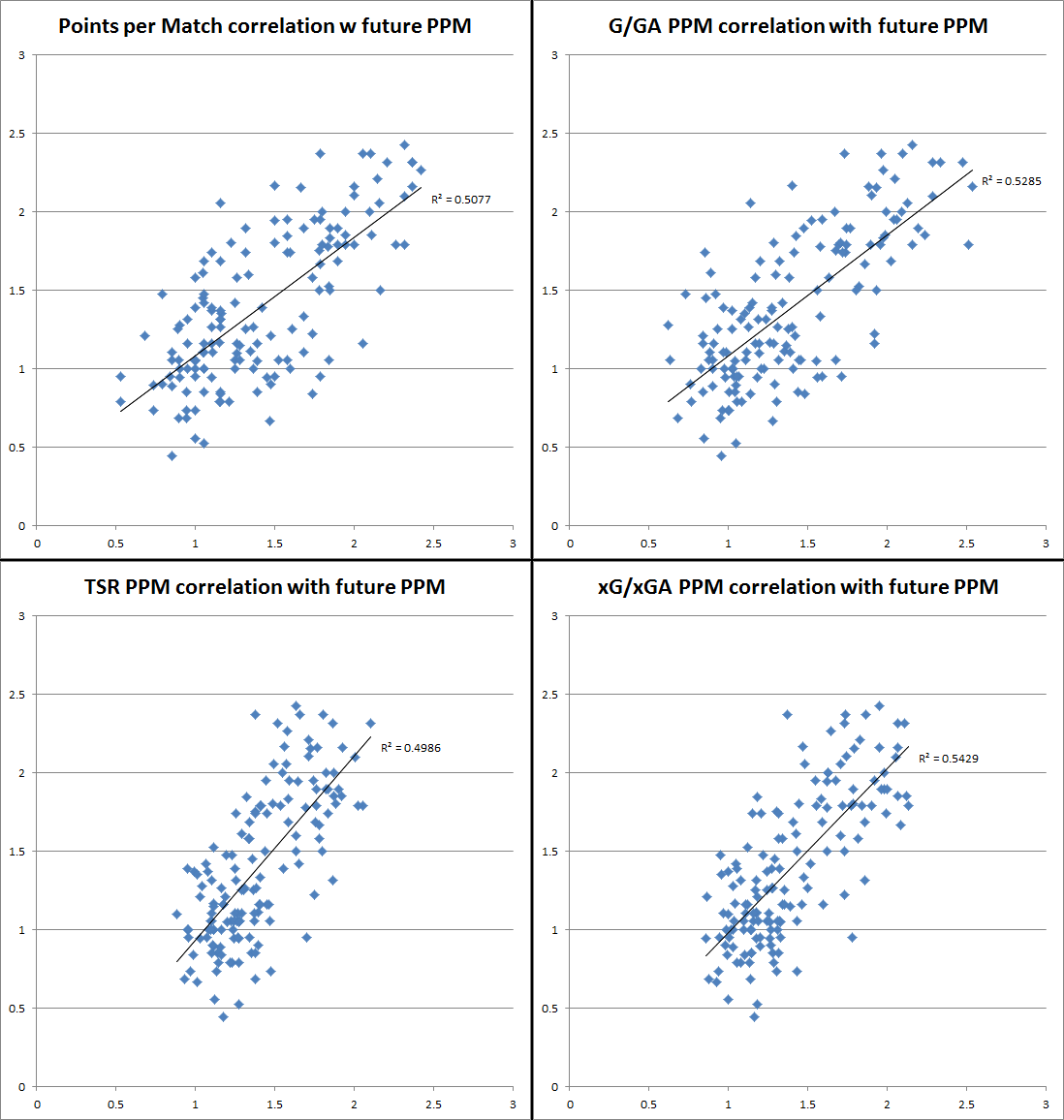Idxomer
Full Member
- Joined
- Aug 3, 2014
- Messages
- 16,655
Just out of curiosity, I looked at some of the 'expected' stats of the last five seasons. Here are the expected goals, expected goals against, and expected points metrics - sorted based on expected points, NOT by chronological order. Can you tell which season is which without looking it up?
xG: 66.19, xGA: 38.06, xPts: 70.99 2019/2020
xG: 57.57, xGA: 31.62, xPts: 70.89 2017/2018
xG: 63.17, xGA: 41.92, xPts: 65.64 2020/2021
xG: 59.04, xGA: 43.54, xPts: 62.33 2016/2017
xG: 68.62, xGA: 52.30, xPts: 61.86 2018/2019
The only one I'm sure of is the last one because the defence was hilariously awful that season.

:format(webp):no_upscale()/cdn.vox-cdn.com/uploads/chorus_asset/file/4177524/predict_test_gdpts.0.png)
